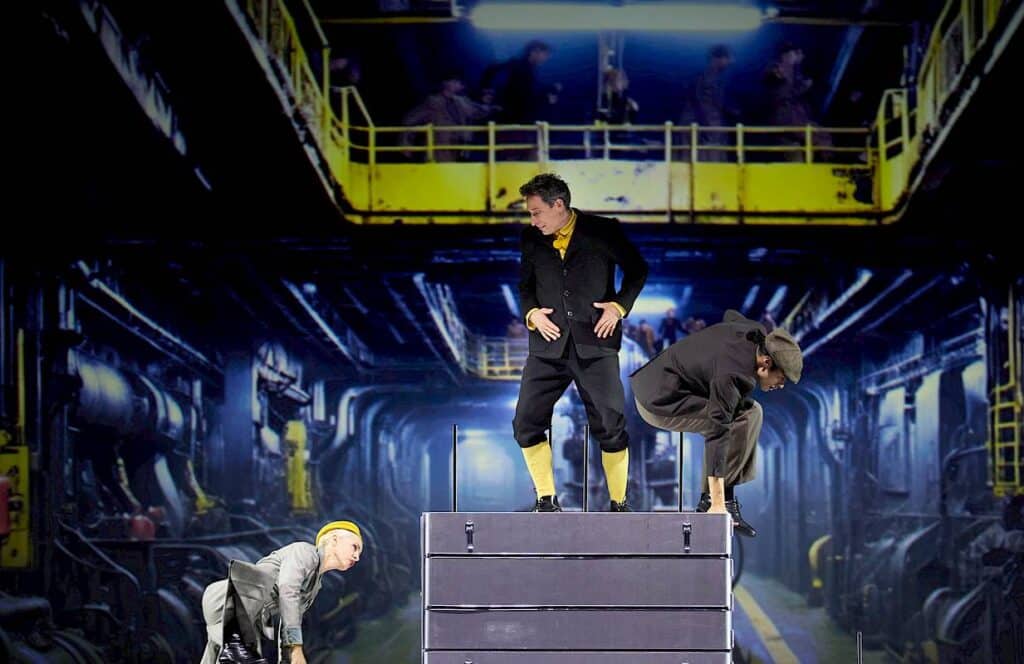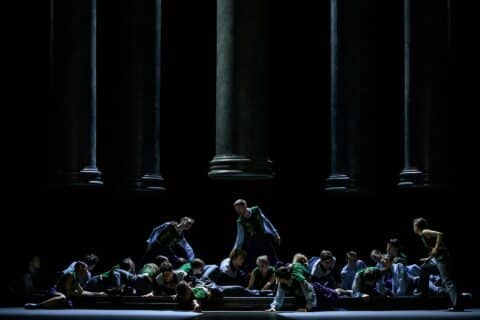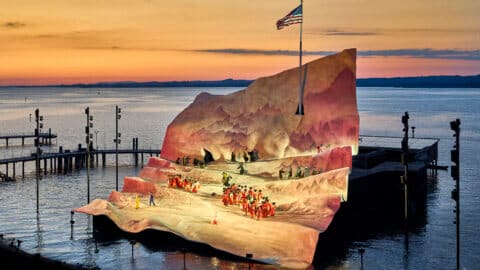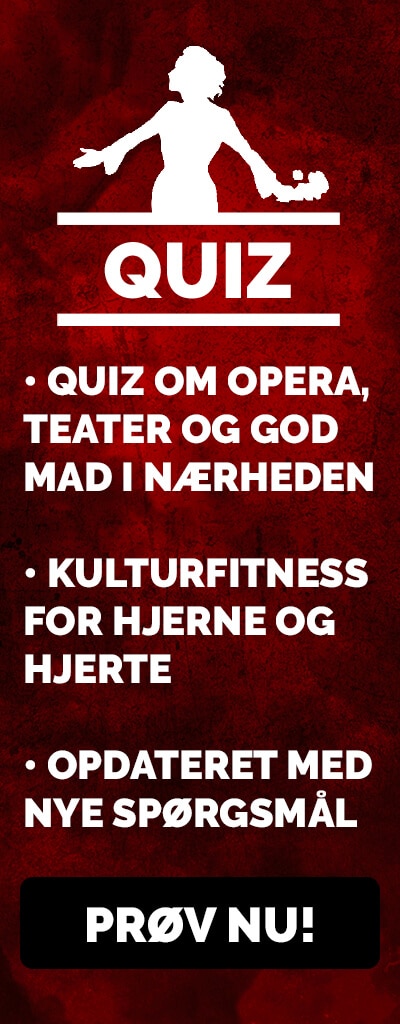AMERIKA • ZÜRICH OPERA
★★★★★☆

Photo: Herwig Pramme
REVIEW AMERIKA: FIRST CLASS KAFKA OPERA AVANTGARDE IN ZURICH
Roman Haubenstock-Ramati’s dramatization of Frans Kafka’s claustrophobic novel Amerika is an extremely rare piece of musical theatre that can now be experienced at Zurich Opera, which delivers the complicated, experimental performance at the artistic top level that always characterizes the productions of theatre director Andreas Homoki.
Amerika is a complicated affair in every way, both in terms of the story’s outlandish plot and the composer’s unusual, unconventional composition, to say the least.
Amerika is the story of 17-year-old Karl Rossmann, who, after a sex scandal at home in Europe, is sent to America to spare his family’s honour.
In 24 fragmentary images, we follow his strange journey around a new country that presents itself as a wet dream of freedom and golden opportunities. But ends up isolating Karl as a clueless immigrant in an intricate spin of problematic acquaintances, arbitrary authorities, and bureaucratic incomprehensibility. Kafka Classic, one might say.
The open ending confirms that the novel was never actually completed by Kafka but was published after his death and recognized as a gripping and insightful exploration of the human mind.
With an iconic Berlin premiere in 1966, Polish/German/Jewish composer Roman Haubenstock-Ramati turned the challenging novel into avant-garde, experimental music theatre with strangely detached stage images and a score that includes three orchestras at once.
One in the orchestra pit, and two others played on tape from speakers placed in different parts of the theatre to create a surround sound effect that adds to the confusion.
The score is characterized by its rich opportunities for improvisation by both orchestra and singers, as well as extensive use of graphic notation, a really flippant music writing technique that became popular in the 1950s as a kind of rebellion against the deadly, constricting conventions of high culture. Take that, Amadeus!
The result is a soundscape without actual arias/songs, but with an imaginative, often terrifying layer of sound surfaces and effects that more than hints at the soundtrack of a horror film.
It’s really strange, and actually quite a nice live experience when you embrace the premise. Impressively, Englishman Paul Curievici, who has appeared in other modernist works by Philipp Glass, for example, manages to hold the role of the tortured Karl together.
Wildly mesmerizing arthouse videography by Robi Voigt complements Christina Schmitt’s spectacular set designs of the America steamer’s gloomy, metallic interior, the Hotel Continental’s gigantic elevator lobby and indeterminate spaces in a mimetic geometry of brightly colored neon tubes in squares and rectangles.
Director Sebastian Baumgarten mixes it all up with more normal set pieces such as an open black-tile bathroom in a car park, in which hobo Robinson drowns celebrity ex-singer Brunelda in a bathtub after a political candidate named I Love You holds an election rally of sorts.
Let’s just say that attempting a full plot summary will cause more confusion than clarity.
Karl ends up in tune with a nature theatre from Oklahoma that performs wildly corny pantomimes in silly animal costumes as a kind of commentary on the simple-minded American entertainment culture.
Or what exactly is going on?
The answer is up for interpretation, and there’s a lot to chew on after 1 hour and 50 minutes of astonishing musical theatre, executed at an ambitious level that’s worth the journey for theatre professionals and discerning, curious audiences.
Five stars from GOT TO SEE THIS for a unique, artistic experience you don’t get every day.

![★★★★★☆ REVIEW IL TROVATORE: DEVILISHLY GOOD VERDI IN ZURICH iltrovatore_c_monikarittershaus_132[1]](https://detskuduse.dk/wp-content/uploads/2022/10/iltrovatore_c_monikarittershaus_1321-480x270.jpg)


